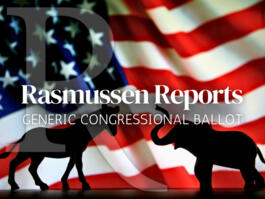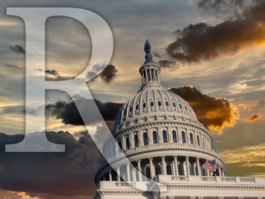End Crony Capitalism, Sell Federal Land, Limit Tax Breaks for the Rich
A Commentary By Michael Barone
Gummit don't work good. That conclusion, often that inelegantly expressed, seems to be more and more common, not only in the United States but around the world.
It is certainly the verdict of John Micklethwait and Adrian Wooldridge in their new book "The Fourth Revolution: The Global Race to Reinvent the State," although expressed, as you might expect from the editor and business editor of the Economist, in far more urbane language.
Their thesis is that the state has been reinvented three times in the last 400 years, and needs reinvention once more. The first revolution they name after Thomas Hobbes, the 17th-century philosopher who called for a powerful dictatorial state to protect people from the horrors of all-out war.
It was superseded by the 19th century and named after John Stuart Mill, who wanted a small state run by competent civil servants to guarantee individual liberty under the rule of law. It was succeeded by the welfare state, championed a century ago by Sidney and Beatrice Webb, to protect the industrial masses from want and need.
Lately the Webb model hasn't been working so well. Democracy seemed to sweep all before it after the fall of the Berlin Wall. But in this century, democracy has receded in some countries and inspires discontent and even disrespect in most others.
Nowhere is that more apparent than in the United States, which pioneered electoral democracy, and where only 28 percent now say the country is moving in the right direction.
The major problems are that democracies in America and elsewhere have been making promises they cannot keep, and they are now running out of money. Social Security and Medicare threaten to squeeze defense and other domestic spending to the lowest shares of the economy in a half-century.
And government can't do things it used to. The Pentagon, still one of the world's largest buildings, was built in 18 months in the early 1940s. A small bridge nearby recently took four years to repair.
Public sector unions have insulated employees from accountability and imposed unsustainable pension and health care costs to the point that Detroit, once America's arsenal of democracy, has gone bankrupt. Half its streetlights don't work.
But, as Micklethwait and Wooldridge point out, some places are doing better. Sweden, the welfare state champion of the 20th century, has cut spending and tax rates sharply. The retirement age was raised and unemployment benefits limited.
More important, Sweden has improved services by providing for competition. Parents get vouchers for children to attend schools of choice. Private companies manage hospitals.
Singapore, under the firm leadership of Lee Kuan Yew, provides an Asian model. It provides health care and pensions comparable to America's at half the cost, with co-payments at every stage.
This Asian model is too authoritarian for Western tastes. In Singapore, Lee's party wins every election, and Lee's system is much admired and to some extent copied by obdurately undemocratic China.
But, as Micklethwait and Wooldridge argue, nations that are starting out can produce innovations impossible in nations where entrenched interests resist change, just as many countries leapfrogged landlines for cellphones.
Change is difficult, the authors argue -- but also inevitable. One reason is Herbert Stein's maxim that what can't go on won't. The other is technological change. The Webbs' welfare state is out of sync with the information revolution.
Evidence: healthcare.gov. The Obama administration had 42 months to prepare, as long as from Pearl Harbor to victory in Europe. It failed and promised to employ "private sector" methods instead.
Obamacare is an attempt to control health care on the assumption that centralized government can make better decisions than citizens can make for themselves.
That assumption, perhaps valid a century ago, is being discredited now. "The desire to control everything," the authors write, "is giving way to pluralism, uniformity to diversity, centralization to localism, opacity to transparency, and immobilisme, or resistance to change, to experimentalism."
"Trim the state and revitalize democracy," they recommend. Let a Simpson-Bowles-type commission revise entitlement law, just as the Federal Reserve handles the money supply.
End crony capitalism. Sell off federal land. Limit tax breaks -- mortgage and local tax deductions, the non-taxability of employer-provided health insurance -- for the affluent.
Here's another idea. Elect a president, unlike this one, able and willing to negotiate solutions on entitlements and taxes.
Michael Barone, senior political analyst at the Washington Examiner, (www.washingtonexaminer.com), where this article first appeared, is a resident fellow at the American Enterprise Institute, a Fox News Channel contributor and a co-author of The Almanac of American Politics. To find out more about Michael Barone, and read features by other Creators writers and cartoonists, visit the Creators Syndicate Web page at www.creators.com.
COPYRIGHT 2014 THE WASHINGTON EXAMINER
DISTRIBUTED BY CREATORS.COM
See Other Political Commentary.
See Other Commentaries by Michael Barone.
Views expressed in this column are those of the author, not those of Rasmussen Reports. Comments about this content should be directed to the author or syndicate.
Rasmussen Reports is a media company specializing in the collection, publication and distribution of public opinion information.
We conduct public opinion polls on a variety of topics to inform our audience on events in the news and other topics of interest. To ensure editorial control and independence, we pay for the polls ourselves and generate revenue through the sale of subscriptions, sponsorships, and advertising. Nightly polling on politics, business and lifestyle topics provides the content to update the Rasmussen Reports web site many times each day. If it's in the news, it's in our polls. Additionally, the data drives a daily update newsletter and various media outlets across the country.
Some information, including the Rasmussen Reports daily Presidential Tracking Poll and commentaries are available for free to the general public. Subscriptions are available for $4.95 a month or 34.95 a year that provide subscribers with exclusive access to more than 20 stories per week on upcoming elections, consumer confidence, and issues that affect us all. For those who are really into the numbers, Platinum Members can review demographic crosstabs and a full history of our data.
To learn more about our methodology, click here.



